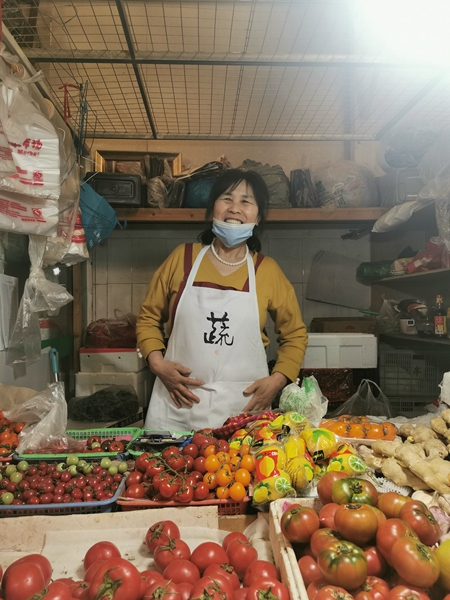

"A calligrapher should walk to the street to serve people. Chinese calligraphy should be used in daily life," says the show's curator, Zhang Weina, adding that they picked the market as an exhibition space instead of a museum to make art relevant to people's daily lives.
Qiu made hundreds of calligraphy pieces for the show in 10 days after visiting the market. He divided his works into three categories: pieces for daily use in the market, such as labels, banners and plaques, with information on food, shops and the market's rules; long scrolls of calligraphy to hang there, with the contents being poems about food by well-known poets, popular phrases on food and funny recipes; and installations.
In a meat stall, Qiu etched the Chinese characters for "sorry" into a long knife used for cutting bones. And the chopping board matched the knife that had a phrase written, "My heart pains when the knife cuts."
Qiu says: "I had many interesting ideas after visiting the market."
He etched into the wheels of a cart the question, "Who stands on the top of the food chain?" When the cart moves in waterlogged areas, the sentence will show.
Qiu has written many English words and sentences in ink on labels, banners and scrolls because the market sells food from across the world, attracting lots of expats living in Beijing.
The artist says it's not difficult for him because many of his works showed in museums overseas have English words he has written with ink brushes.
"I can write English words in ink in different styles by studying handwritten menus, billboards and banners," says Qiu.
His works include different art forms, such as paintings, installations, photos, videos and performances. Chinese characters and calligraphy are the usual subjects of his works.